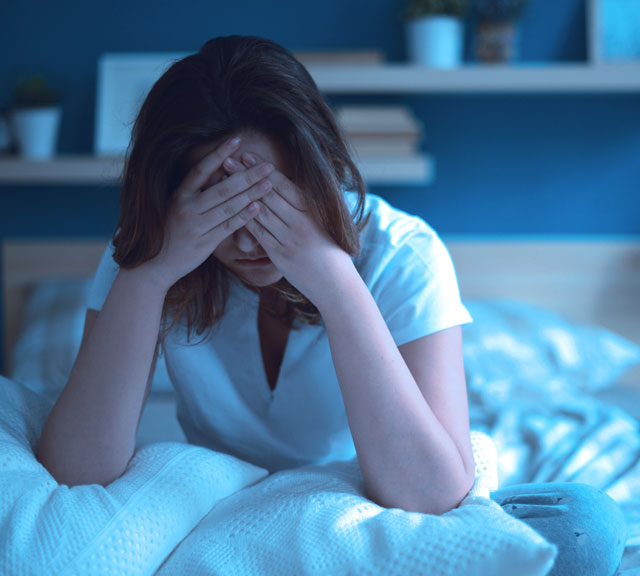Anxiety, Depression, Stress: Why the Differences Matter

Answer a few questions and we'll provide you with a list of primary care providers that best fit your needs.
Anxiety, depression and stress — just about everyone feels these emotions at some time. All are common reactions to life’s challenges, from losing a loved one to going through a divorce. On the surface they can look a lot alike, but there are distinct differences.
Is It Anxiety or Depression?
If you often feel anxious or depressed for no apparent reason, you may have an anxiety disorder, depression, or both. It’s not unusual for someone to suffer from both conditions at the same time. In fact, just about half of those diagnosed with depression are also diagnosed with an anxiety disorder.
Depression and anxiety are serious but treatable illnesses. The same medications may be used to ease symptoms of each condition. The two also share similar symptoms, like nervousness, irritability, insomnia and problems concentrating, but each has its own causes.
Anxiety: If you have an anxiety disorder, you may experience:
- Fear, panic or anxiety in situations where most people would not feel anxious or threatened
- A constant nagging worry or anxiousness
- Sudden panic or anxiety attacks without any clear trigger
Untreated, these disorders can limit your ability to work, maintain relationships or even leave the house.
Depression: When you’re depressed, it affects just about everything in your life — how you think, feel, behave and function. You may experience one or more of these symptoms:
- Discouragement
- Sadness
- Hopelessness
- Anger
- Lack of motivation or interest in life in general
- Low energy level
- Insomnia
- Feeling overwhelmed by daily tasks and personal interactions
If these feelings last longer than two weeks, and interfere with daily activities like spending time with friends, caring for your family or going to work, most likely you’re experiencing a major depressive episode.
In fact, just about half of those diagnosed with depression are also diagnosed with an anxiety disorder.
What About Stress?

Stress and anxiety may seem similar, but they’re not the same. The difference? Stress is a response to daily pressures or a threatening situation, while anxiety is a reaction to the stress. Anxiety, which has no clear cause, tends to last longer and be more difficult to treat.
Stress affects a lot of people, and can influence your health. Symptoms include:
- Headaches
- High blood pressure
- Chest pain
- Heart palpitations
- Skin rashes
- Loss of sleep
Stress typically goes away when the stressors disappear. However, chronic stress can escalate into anxiety or depression, so it’s important to take steps to reduce or eliminate stress whenever possible.
If you’re not sure whether you’re suffering from stress, anxiety or depression, don’t delay in talking to a health care provider to get the help you need. The journey to recovery begins with defining the cause of your issues and getting the right treatment.
Answer a few questions and we'll provide you with a list of primary care providers that best fit your needs.
Source: Anxiety & Depression Society of America; Psych Central; PsyWeb.com; Students Against Depression



.tmb-card-head.webp?sfvrsn=680c0961_9)
